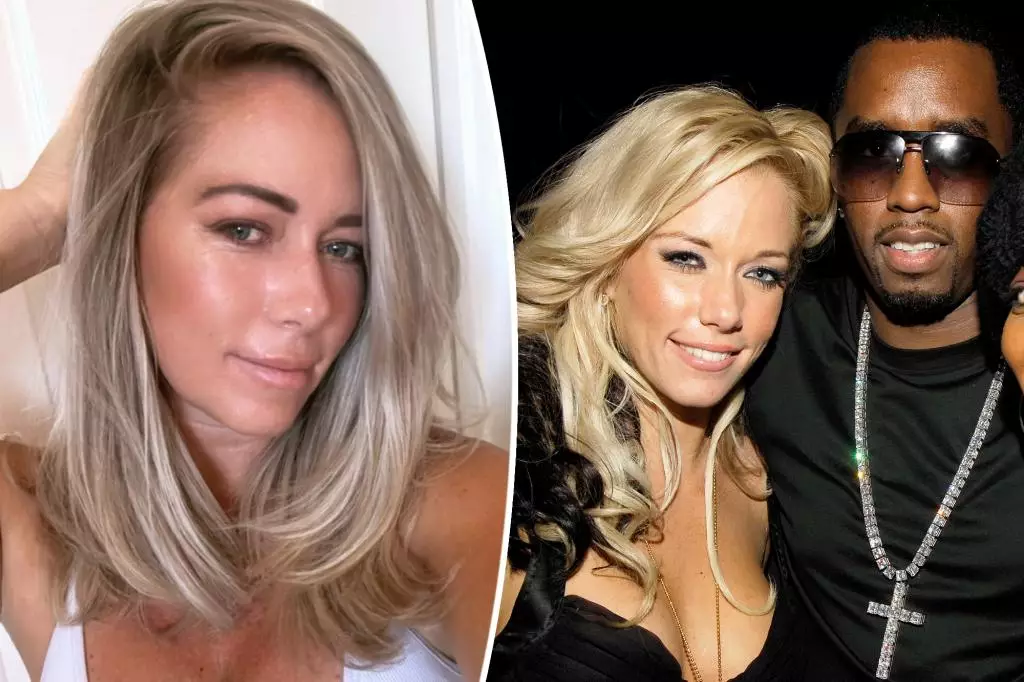Kendra Wilkinson’s recent comments regarding her experiences at Sean “Diddy” Combs’s notorious parties offer a stark glimpse into the contradictory nature of Hollywood’s party culture—a realm often marked by indulgence on the surface but laced with dark undercurrents. The former Playboy model and reality television star spoke candidly on “The Kylie & Jackie O Show,” reminiscing about her youth spent in high-profile social settings. While she insists her personal experiences were enjoyable, the ongoing legal troubles surrounding Diddy suggest a grim reality lurking beneath the glamour.
Wilkinson’s assertion that she “never saw anything really bad happening” at Diddy’s parties raises significant questions about selective perception and the broader implications of privilege. The phrase “sex is sex” further simplifies the complexity of consensual interactions in these high-octane environments. It’s a deeply nuanced subject, and while her personal narrative may paint a carefree picture, it begs a reckoning with the potential exploitation that often goes unnoticed in such settings. Her statements can be seen as both a personal defense and a reflection of the culture that permits such normalization of raunchy celebrations, potentially overshadowing the experiences of those who might not have walked away unscathed.
Hollywood’s Unseen Shadows
The recent allegations against Diddy present a stark and haunting contrast to Wilkinson’s jovial memories. The charges of sex trafficking and abuse are serious enough to provoke nationwide outrage, primarily because they reveal the hidden violence and manipulation that can plague the celebrity lifestyle. Federal agents’ incidents, where they uncovered materials suggesting the organization of “Freak Offs,” serve to highlight that the facade of glitz can often be a façade for something far more sinister.
Diddy’s case illustrates a dichotomy prevalent in Hollywood: the coexistence of high-profile parties teeming with celebrities and a darker underbelly of unchecked behavior that can devolve into criminality. As prosecutors contend, Combs is accused of building a “criminal enterprise” that operated under the guise of luxury and exclusivity. This juxtaposition raises urgent questions: are social acceptability and public admiration blinding us to the damaging behaviors that may occur in these spheres?
The Ripple Effect of Accountability
It is noteworthy that Wilkinson’s narrative and Diddy’s allegations both exist within a cultural context that shuns accountability. The party scene, historically rooted in privilege, often silences victims, particularly those from marginalized backgrounds. Kendra’s experiences, while not immediately negative, may unintentionally trivialize the seriousness of the accusations pointed at Diddy, especially considering that her own colorful history at the Playboy Mansion aligns her with a code of silence that many other women have felt pressured to adopt in the face of abuse.
Diddy’s legal troubles are poised to usher in widespread scrutiny not just of his actions but of the entire music and entertainment industries’ complicity in concealing similar behaviors. The impact of Cassie Ventura’s lawsuit cannot be understated; it inspired a wave of individuals to come forward, reflecting a cultural shift toward empowerment—an embrace of the “#MeToo” movement that strives to lift voices previously silenced.
As we analyze the threads connecting Wilkinson’s carefree remarks with Diddy’s spiraling accusations, we find ourselves at a reckoning point—a reflection on the intoxicating allure of fame that often masks underlying issues. This saga highlights the urgent necessity for alliances to prioritize transparency and support for those who confront overwhelming odds in speaking out.
In the wake of such significant allegations, maybe it’s time for a more profound discussion about the celebration of nightlife and its consequences. To navigate this multifaceted landscape, it is essential for partygoers, celebrities, and followers alike to advocate for change—aiming to transform a culture historically rooted in silence into one that nourishes and protects. While Wilkinson can fondly speak of youthful adventures, the realities unveiled by Combs’ accusations indicate a pivotal moment for accountability. A culture that reveres honesty could foster a safer space for everyone, ensuring that no one has to carry the weight of their silence alone.

Leave a Reply